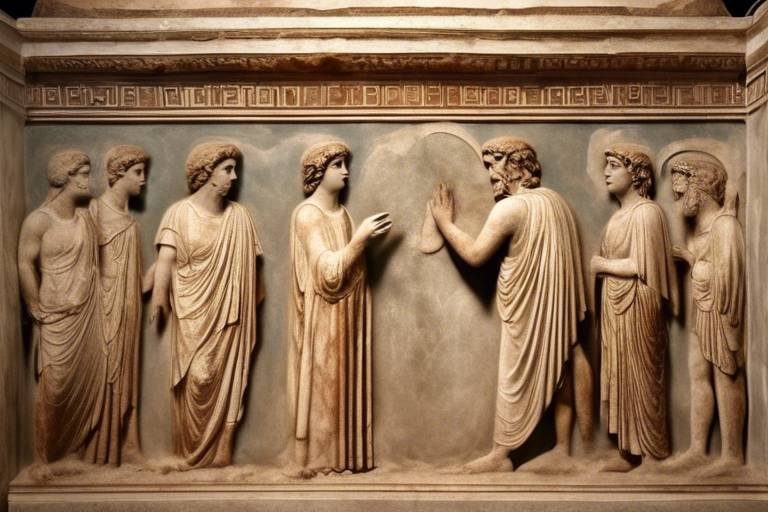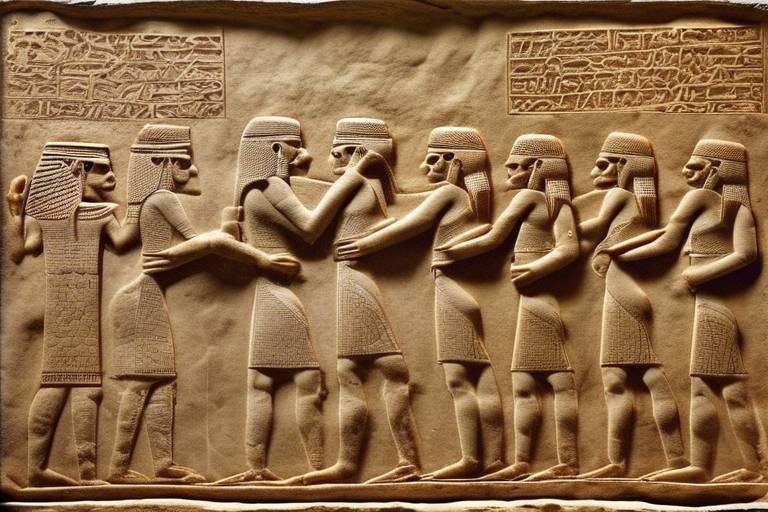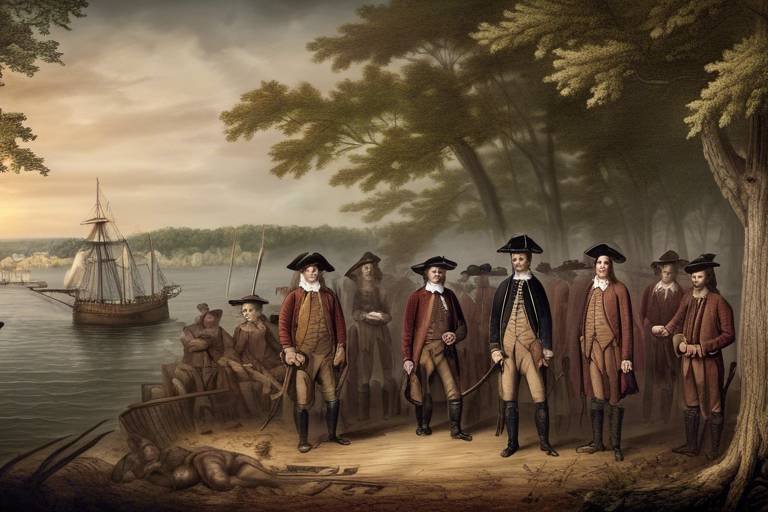The Enigma of the Ancient Greek Tragedies
Delve into the enigmatic world of ancient Greek tragedies, where myths and reality intertwine to create timeless narratives that continue to intrigue and inspire audiences across generations. These theatrical masterpieces, born from the depths of Greek culture and imagination, hold within them the echoes of a bygone era, yet their themes and characters resonate with a universal human experience that transcends time and space.
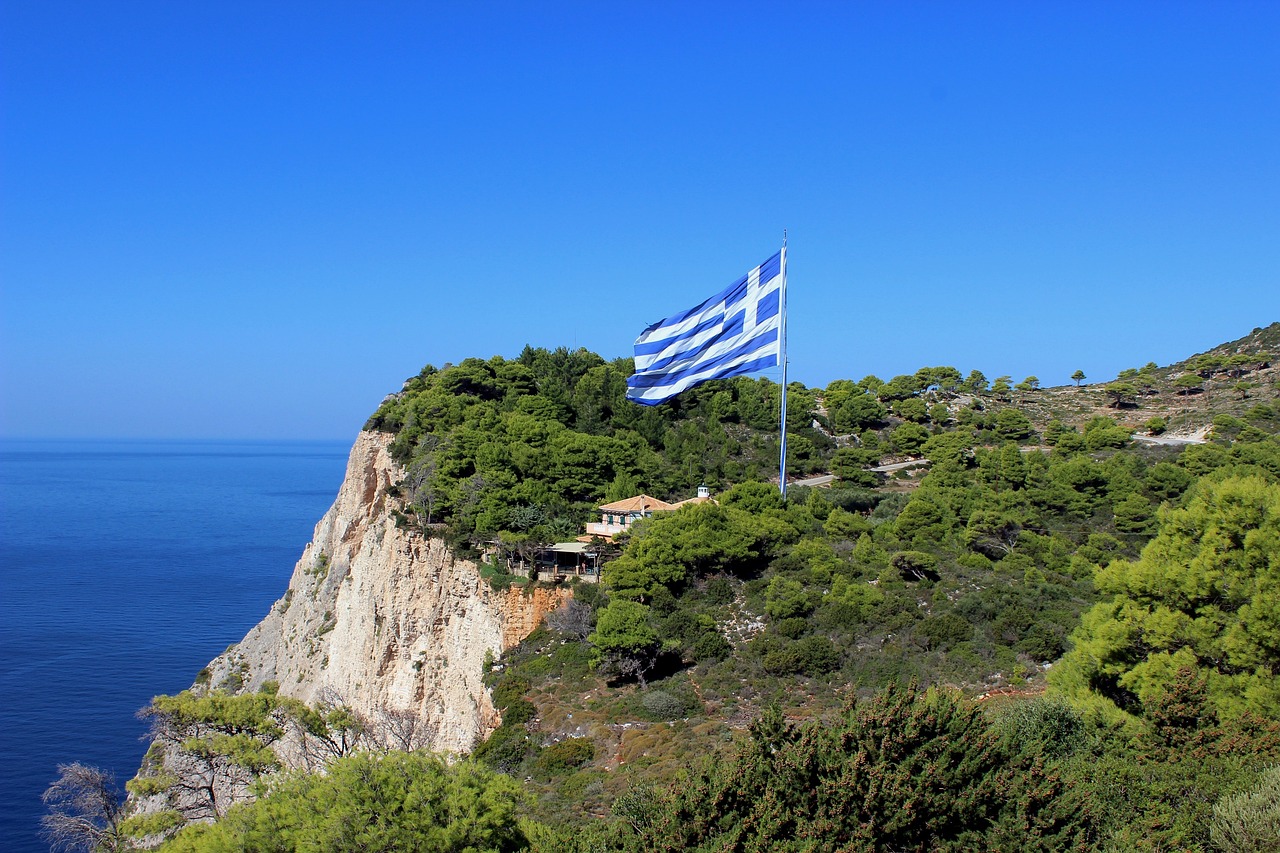
Origins of Greek Tragedies
Exploring the enduring mysteries and complexities of the ancient Greek tragedies, their impact on literature and culture, and the timeless themes and characters that continue to captivate audiences worldwide.
The origins of Greek tragedies can be traced back to the ancient religious festivals held in honor of the god Dionysus, known as the Dionysia. These dramatic performances were an integral part of the festival, combining music, dance, and poetry to depict stories of gods, heroes, and mortals. The early Greek tragedies emerged from the rich storytelling traditions of the Mediterranean region, drawing inspiration from myths, legends, and historical events. These theatrical performances served not only as entertainment but also as a means of exploring fundamental questions about human existence, morality, and the nature of the divine.
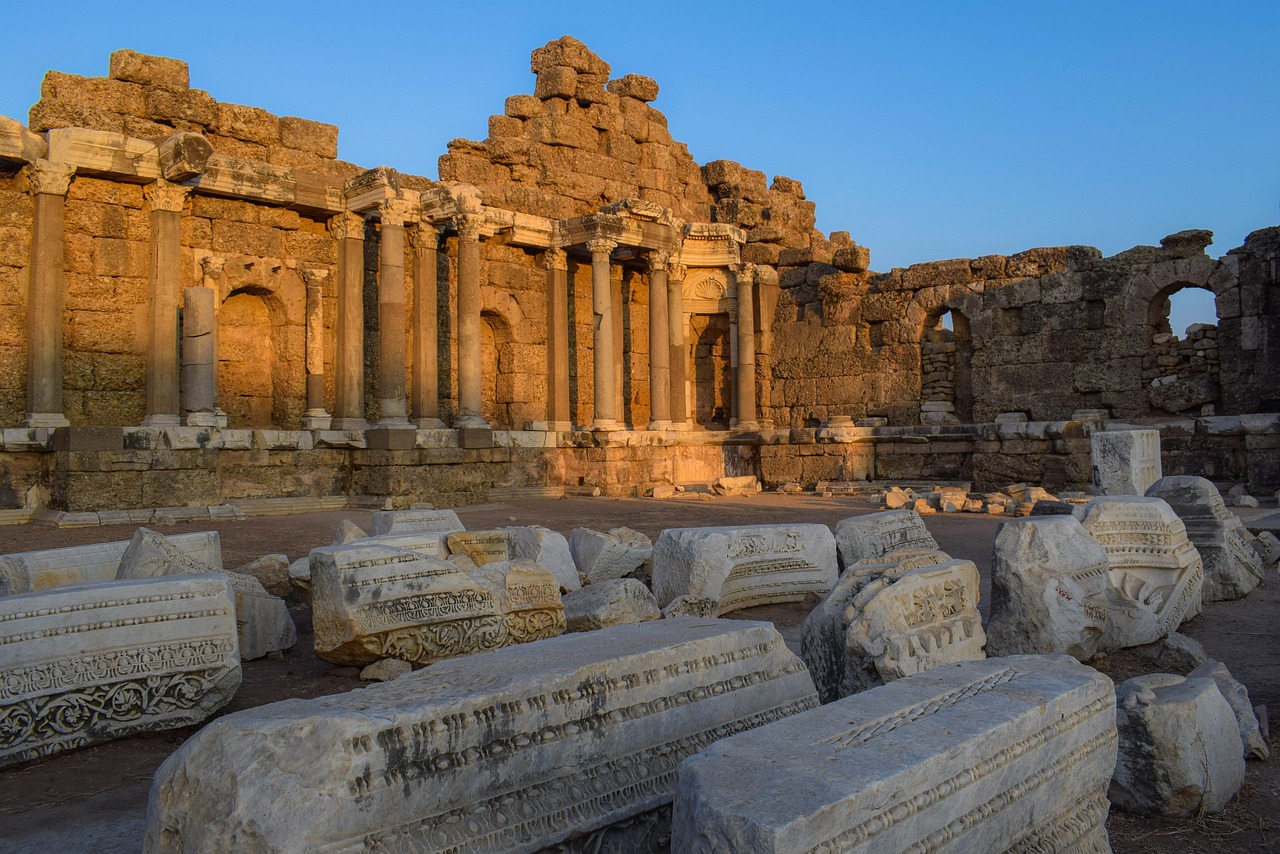
Key Characteristics of Greek Tragedies
When delving into the realm of ancient Greek tragedies, one cannot overlook the key characteristics that define these timeless works of literature. These tragedies are not merely stories of woe and despair but intricate narratives that explore the depths of human emotion and the complexities of fate and choice.
One of the defining features of Greek tragedies is the use of choruses, a group of performers who provide commentary, background information, and emotional reactions to the unfolding events on stage. These choruses serve as a bridge between the audience and the characters, offering insight and reflection on the themes at play.
Moreover, Greek tragedies often revolve around the concept of tragic flaws in protagonists, known as "hamartia," which lead to their downfall. Whether it be excessive pride, jealousy, or a fatal mistake, these flaws serve as the catalyst for the chain of events that culminate in tragedy.
The exploration of fate versus free will is another key characteristic of Greek tragedies, as playwrights grapple with the idea of whether individuals have control over their destinies or are subject to the whims of a higher power. This eternal struggle between agency and predestination adds a layer of depth and philosophical inquiry to these dramatic works.
Within the dramatic structure of Greek tragedies lie intricate layers of storytelling, divided into distinct sections such as the prologue, parodos, episodes, stasimon, and exodus. Each segment serves a specific purpose in advancing the plot, building tension, and eliciting emotional responses from the audience.
Themes of hubris, the excessive pride that leads to downfall, fate as an inescapable force guiding human lives, and catharsis, the emotional cleansing and purging experienced by characters and viewers alike, are recurrent motifs that underscore the profound impact of Greek tragedies.

Dramatic Structure and Themes
Exploring the enduring mysteries and complexities of the ancient Greek tragedies, their impact on literature and culture, and the timeless themes and characters that continue to captivate audiences worldwide.
Delving into the historical and cultural context that gave rise to the ancient Greek tragedies, examining their roots in religious festivals, storytelling traditions, and societal beliefs.
Analyzing the defining features of Greek tragedies, such as the use of choruses, tragic flaws in protagonists, and the exploration of fate versus free will.
Exploring the unique structure of Greek tragedies, including the division into prologue, parodos, episodes, stasimon, and exodus, and the recurring themes of hubris, fate, and catharsis.
Highlighting the contributions of renowned playwrights like Aeschylus, Sophocles, and Euripides, and their iconic works such as Oedipus Rex, Medea, and Antigone.
Examining the archetypal characters found in Greek tragedies, such as the tragic hero, the wise chorus, the tyrannical ruler, and the vengeful deity, and their symbolic significance.
Tracing the lasting impact of ancient Greek tragedies on Western literature, drama, and philosophy, and their influence on subsequent playwrights, poets, and thinkers throughout history.
Discussing the various interpretations and adaptations of Greek tragedies in modern times, including stage productions, films, novels, and academic studies that continue to reinterpret these timeless works.
When delving into the dramatic structure and themes of ancient Greek tragedies, one cannot overlook the meticulous craftsmanship and profound symbolism embedded within these theatrical masterpieces. The structural elements of Greek tragedies, such as the prologue setting the stage, the parodos introducing the chorus, the episodes unfolding the plot, the stasimon reflecting on the events, and the exodus concluding the narrative, create a symphonic rhythm that immerses the audience in a whirlwind of emotions and revelations.
The themes explored in Greek tragedies are as timeless as they are poignant. The concept of hubris, the dangerous pride that leads to downfall, permeates many of these works, serving as a cautionary tale against arrogance and excess. Fate, the inexorable force that shapes human destiny, intertwines with the characters' choices, sparking a debate on the boundaries of free will and predestination. The catharsis experienced by both the characters and the audience, a purging of emotions and a moment of clarity, elevates the tragedies to a transcendent realm where profound truths are unveiled amidst the chaos and turmoil.
Through the intricate interplay of structure and themes, ancient Greek tragedies continue to resonate with audiences across centuries, inviting us to ponder the complexities of human nature, the capriciousness of fate, and the enduring power of storytelling to illuminate the darkest corners of the human experience.
Stay tuned for the frequently asked questions section coming soon!

Notable Playwrights and Works
Notable Playwrights and Works in the realm of ancient Greek tragedies have left an indelible mark on literature and culture, shaping the way stories are told and characters are portrayed. Among the most revered playwrights of this era are Aeschylus, known for his innovative use of multiple characters and grand themes, including his iconic work Oedipus Rex. Sophocles, another luminary figure, delved deep into the human psyche with masterpieces like Antigone, exploring themes of morality and fate. Euripides, often considered the most modern of the three, challenged societal norms and beliefs through works like Medea, a powerful tale of revenge and passion.

Oedipus Rex,
Oedipus Rex, also known as Oedipus the King, is a renowned Greek tragedy written by the playwright Sophocles. The play follows the tragic story of Oedipus, the King of Thebes, who unknowingly fulfills a prophecy that he will kill his father and marry his mother. Despite his efforts to avoid this fate, Oedipus ultimately discovers the horrifying truth and blinds himself in a fit of despair.
Sophocles' Oedipus Rex is considered a masterpiece of ancient Greek drama, known for its complex characters, compelling plot, and exploration of themes such as fate, free will, and the consequences of hubris. The play's enduring popularity and relevance can be attributed to its timeless portrayal of the human condition and the inevitability of destiny.
One of the key elements of Oedipus Rex is the concept of **tragic irony**, where the audience is aware of Oedipus' true identity and fate, while the protagonist remains ignorant until the final revelation. This dramatic device creates a sense of tension and suspense, drawing viewers into the unfolding tragedy.
The character of Oedipus himself embodies the archetype of the **tragic hero**, a figure who experiences a downfall due to a fatal flaw in his character. Oedipus' relentless pursuit of the truth and his unwavering determination to uncover the mystery of his origins ultimately lead to his tragic undoing.
Throughout the play, Oedipus grapples with the themes of **knowledge** and **ignorance**, **fate** and **free will**, and the **limits of human agency** in the face of a predetermined destiny. His journey serves as a cautionary tale about the dangers of pride and the consequences of defying the will of the gods.
**Oedipus Rex** remains a seminal work in the canon of Greek tragedy, revered for its intricate plot, psychological depth, and profound exploration of the human psyche. The play continues to captivate audiences and scholars alike, inviting endless interpretations and analyses of its enduring themes and complex characters.
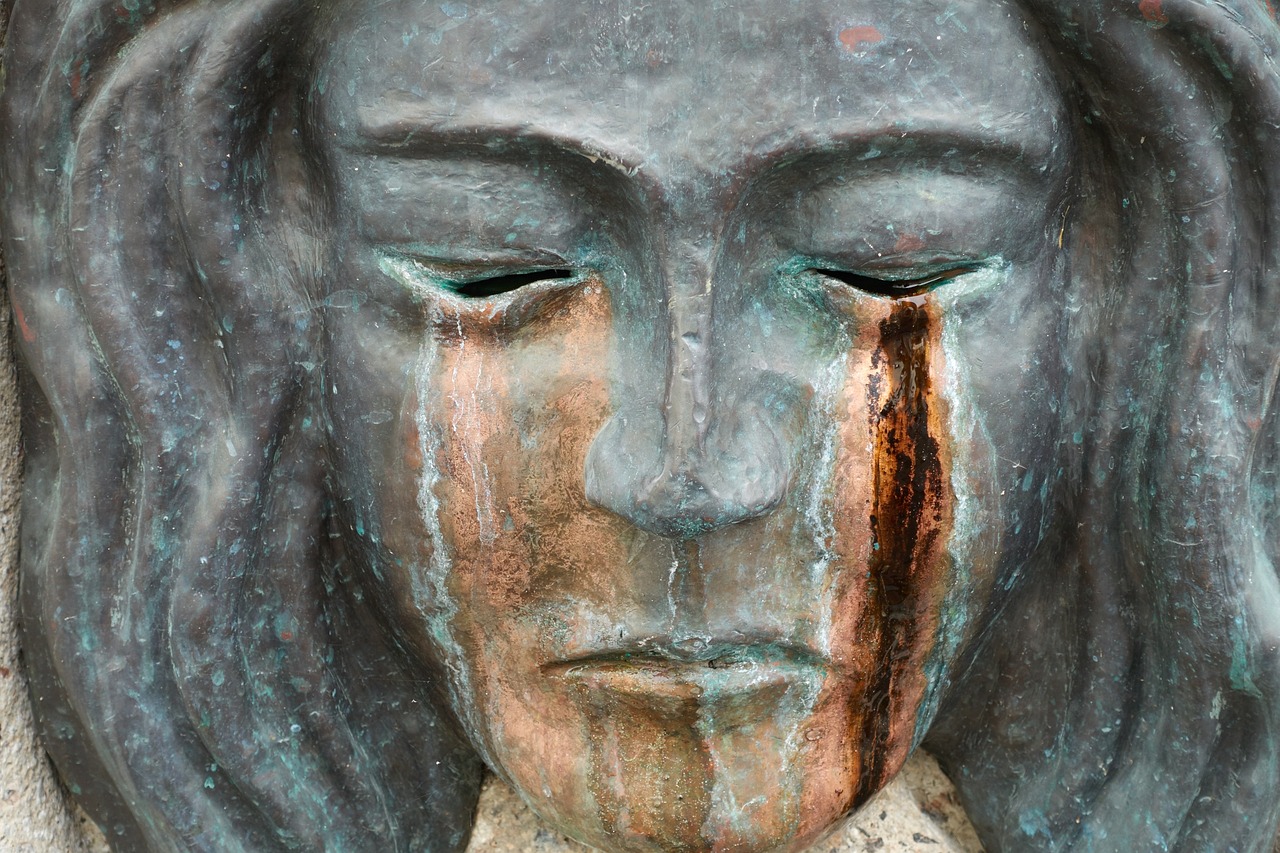
The legacy of Greek tragedies is a rich tapestry woven into the fabric of Western literature and culture. These ancient works have left an indelible mark on the world of storytelling, influencing generations of writers, artists, and thinkers. The enduring themes of hubris, fate, and catharsis continue to resonate with audiences, offering profound insights into the human condition.
Renowned playwrights like Aeschylus, Sophocles, and Euripides stand as pillars of the dramatic tradition, crafting masterpieces that have stood the test of time. From the tragic hero of Oedipus Rex to the vengeful Medea, these characters have become archetypes that embody the complexities of human nature.
The dramatic structure of Greek tragedies, with its intricate divisions into prologue, parodos, episodes, stasimon, and exodus, creates a rhythmic flow that draws the audience into the unfolding narrative. The use of choruses adds a communal voice to the storytelling, heightening the emotional impact of the tragedies.
Interpretations and adaptations of Greek tragedies in modern times have kept these ancient works alive and relevant. From stage productions that breathe new life into classic texts to films that reimagine the stories in contemporary settings, the influence of Greek tragedies continues to be felt across various artistic mediums.
As we delve into the enigmatic world of ancient Greek tragedies, we are confronted with timeless questions about the nature of destiny, the limits of human agency, and the consequences of unchecked pride. These works serve as mirrors that reflect the complexities of the human experience, inviting us to ponder our own roles in the grand theater of life.
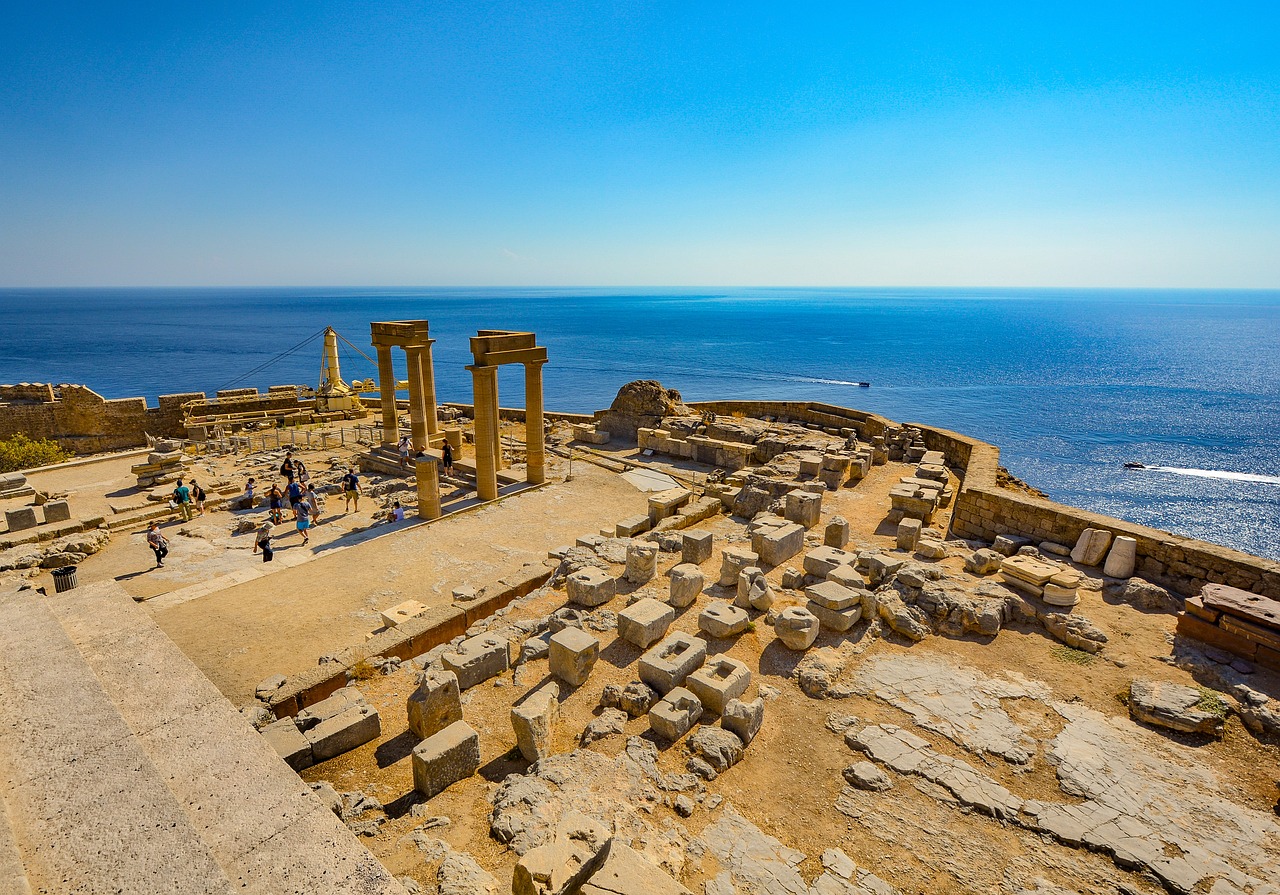
Medea,
Medea is a powerful and complex tragedy written by the ancient Greek playwright Euripides. The play revolves around the character of Medea, a barbarian woman who is betrayed by her husband, Jason, and seeks revenge in a series of horrifying actions. Medea challenges traditional gender roles and explores themes of betrayal, revenge, and the consequences of unchecked passion. The character of Medea is both sympathetic and terrifying, as she grapples with the depths of her own rage and despair.

and
Exploring the enduring mysteries and complexities of the ancient Greek tragedies, their impact on literature and culture, and the timeless themes and characters that continue to captivate audiences worldwide.
Delving into the historical and cultural context that gave rise to the ancient Greek tragedies, examining their roots in religious festivals, storytelling traditions, and societal beliefs.
Analyzing the defining features of Greek tragedies, such as the use of choruses, tragic flaws in protagonists, and the exploration of fate versus free will.
Exploring the unique structure of Greek tragedies, including the division into prologue, parodos, episodes, stasimon, and exodus, and the recurring themes of hubris, fate, and catharsis.
Highlighting the contributions of renowned playwrights like Aeschylus, Sophocles, and Euripides, and their iconic works such as Oedipus Rex, Medea, and Antigone.
Examining the archetypal characters found in Greek tragedies, such as the tragic hero, the wise chorus, the tyrannical ruler, and the vengeful deity, and their symbolic significance.
Tracing the lasting impact of ancient Greek tragedies on Western literature, drama, and philosophy, and their influence on subsequent playwrights, poets, and thinkers throughout history.
Discussing the various interpretations and adaptations of Greek tragedies in modern times, including stage productions, films, novels, and academic studies that continue to reinterpret these timeless works.
When delving into the world of ancient Greek tragedies, one cannot ignore the intricate connections between characters, themes, and the human experience. The conjunction "and" symbolizes the interwoven nature of these elements, where tragedy and triumph, fate and free will, collide in a mesmerizing dance on the stage of life. It serves as a bridge between past and present, inviting us to ponder the eternal questions of existence and mortality. Just as the Greek tragedies themselves are a tapestry of emotions and conflicts, the humble word "and" carries a weight of significance, linking our understanding of the past with the complexities of the present.

Antigone.
Antigone, a timeless Greek tragedy written by Sophocles, explores themes of family loyalty, moral duty, and the clash between individual conscience and state authority. The play centers around the protagonist, Antigone, who defies the king's decree by burying her brother, Polynices, in defiance of the state's orders. Antigone's unwavering commitment to honoring her family and the gods, even at the cost of her own life, highlights the complexities of moral decision-making and the consequences of challenging societal norms.

When delving into the origins of Greek tragedies, one cannot ignore the rich historical and cultural tapestry that gave birth to these timeless works of art. Rooted in the religious festivals of ancient Greece, the tragedies emerged as a form of communal catharsis, blending elements of storytelling traditions and societal beliefs. These performances were not merely entertainment but served as a reflection of the values, fears, and aspirations of the Greek society.
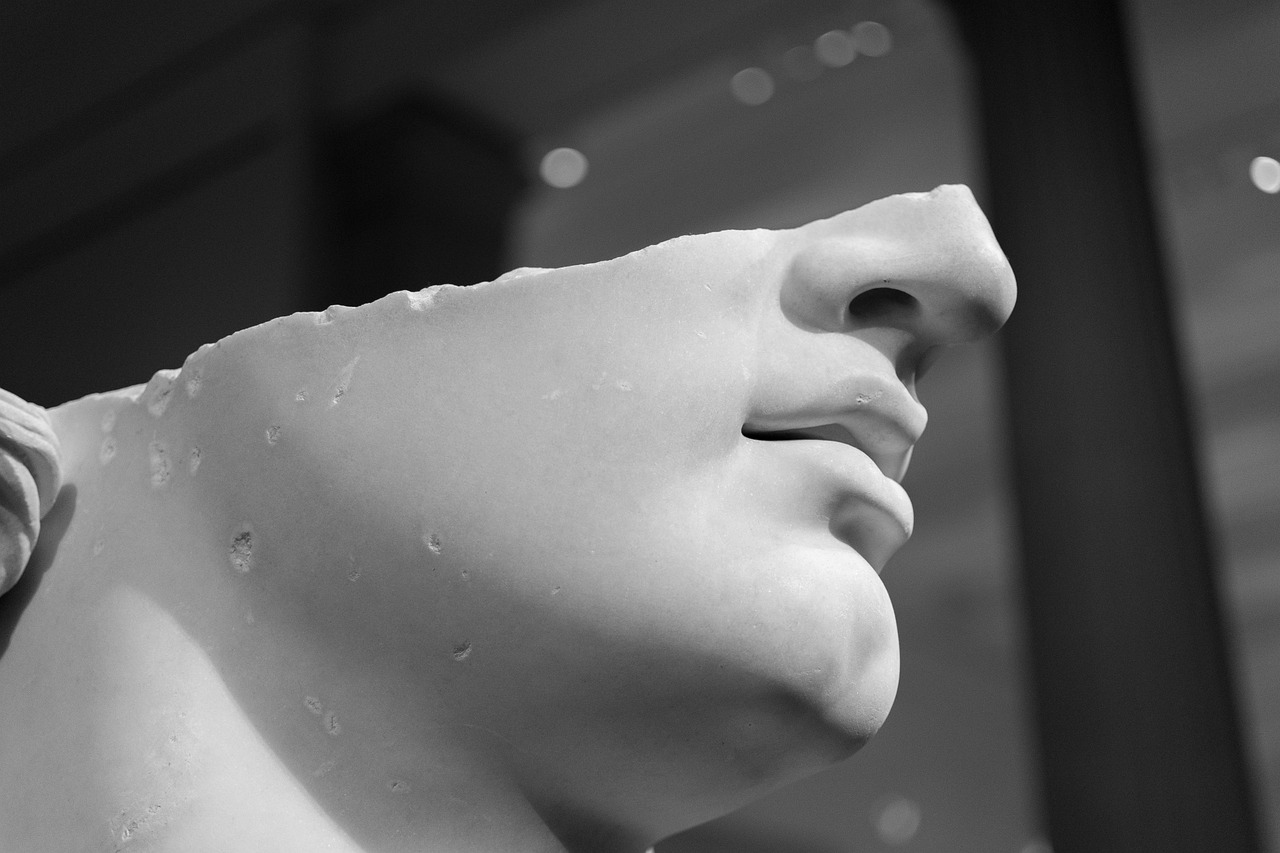
Character Archetypes in Greek Tragedies
In the realm of ancient Greek tragedies, character archetypes play a crucial role in shaping the narrative and conveying deeper symbolic meanings. One of the most prominent archetypes is the tragic hero, a character with noble qualities who experiences a downfall due to a fatal flaw, known as hamartia. This archetype is exemplified in figures like Oedipus and Orestes, whose hubris or misguided actions lead to their ultimate demise.
Another significant archetype is the wise chorus, a group of characters who provide commentary, moral insights, and reflections on the unfolding events. The chorus serves as a collective voice representing the broader community or society, offering guidance and perspective to the audience.
On the opposite end of the spectrum, we encounter the archetype of the tyrannical ruler, characterized by excessive pride, cruelty, and abuse of power. Figures like Creon in "Antigone" embody this archetype, showcasing the destructive consequences of unchecked authority and arrogance.
Additionally, Greek tragedies often feature vengeful deities as archetypal figures representing forces beyond human control. Gods and goddesses like Zeus, Apollo, and the Furies intervene in mortal affairs, meting out punishment or reward based on divine justice and cosmic order.
These character archetypes in Greek tragedies serve not only as individual figures within the dramatic narrative but also as symbolic representations of broader themes such as power dynamics, moral dilemmas, and the precarious balance between human agency and fate.
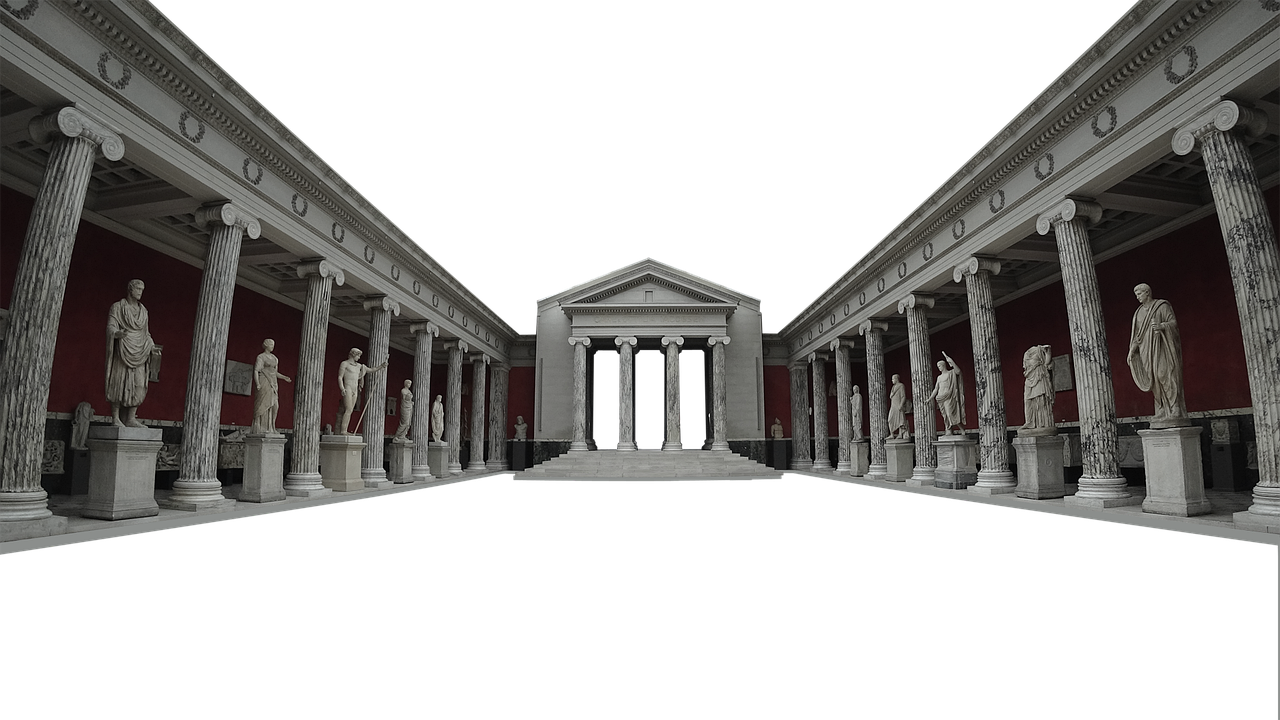
Legacy of Greek Tragedies
The legacy of Greek tragedies resonates through the annals of literature, drama, and philosophy, leaving an indelible mark on the cultural tapestry of humanity. These ancient works have served as the cornerstone for Western storytelling, influencing generations of writers, playwrights, and thinkers.
One of the most significant aspects of the legacy of Greek tragedies is their exploration of fundamental human experiences and emotions. Themes of love, betrayal, ambition, and fate are woven into the fabric of these timeless narratives, offering profound insights into the complexities of the human condition.
Moreover, the enduring appeal of Greek tragedies lies in their universal themes and characters that transcend time and culture. The tragic heroes, flawed yet noble, grapple with their destinies in a world governed by forces beyond their control, resonating with audiences across centuries.
The legacy of Greek tragedies extends beyond the realm of literature, influencing the development of dramatic structure and storytelling techniques. The use of choruses, the exploration of moral dilemmas, and the cathartic release of emotions are all elements that can be traced back to the ancient Greek stage.
Furthermore, the legacy of Greek tragedies can be seen in the enduring popularity of adaptations and reinterpretations of these classic works. From modern stage productions to Hollywood films, the themes and characters of Greek tragedies continue to captivate and inspire audiences around the world.

Interpretations and Adaptations
Exploring the enduring mysteries and complexities of the ancient Greek tragedies, their impact on literature and culture, and the timeless themes and characters that continue to captivate audiences worldwide.
Delving into the historical and cultural context that gave rise to the ancient Greek tragedies, examining their roots in religious festivals, storytelling traditions, and societal beliefs.
Analyzing the defining features of Greek tragedies, such as the use of choruses, tragic flaws in protagonists, and the exploration of fate versus free will.
Exploring the unique structure of Greek tragedies, including the division into prologue, parodos, episodes, stasimon, and exodus, and the recurring themes of hubris, fate, and catharsis.
Highlighting the contributions of renowned playwrights like Aeschylus, Sophocles, and Euripides, and their iconic works such as Oedipus Rex, Medea, and Antigone.
Examining the archetypal characters found in Greek tragedies, such as the tragic hero, the wise chorus, the tyrannical ruler, and the vengeful deity, and their symbolic significance.
Tracing the lasting impact of ancient Greek tragedies on Western literature, drama, and philosophy, and their influence on subsequent playwrights, poets, and thinkers throughout history.
Discussing the various interpretations and adaptations of Greek tragedies in modern times, including stage productions, films, novels, and academic studies that continue to reinterpret these timeless works.
Frequently Asked Questions
- What are the origins of Greek tragedies?
The ancient Greek tragedies originated from religious festivals and storytelling traditions, deeply rooted in the historical and cultural context of ancient Greece.
- What are the key characteristics of Greek tragedies?
Greek tragedies are characterized by elements such as the use of choruses, exploration of tragic flaws in protagonists, and the timeless debate between fate and free will.
- Who are some notable playwrights of Greek tragedies?
Renowned playwrights of Greek tragedies include Aeschylus, Sophocles, and Euripides, known for their iconic works like Oedipus Rex, Medea, and Antigone.
- What is the legacy of Greek tragedies?
Ancient Greek tragedies have left a lasting impact on Western literature, drama, and philosophy, influencing generations of playwrights, poets, and thinkers throughout history.
- How have Greek tragedies been interpreted and adapted in modern times?
Modern interpretations and adaptations of Greek tragedies can be seen in various forms such as stage productions, films, novels, and academic studies, showcasing the enduring relevance of these classic works.






